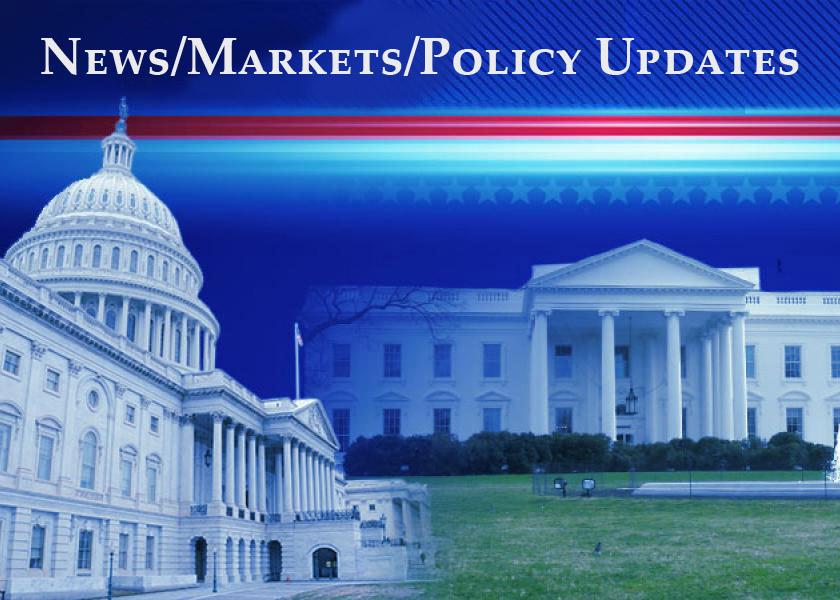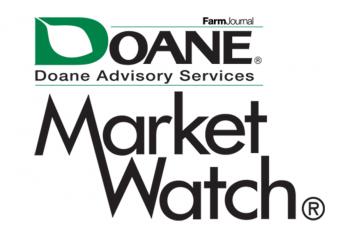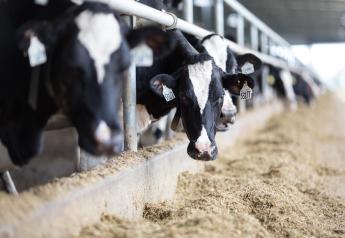U.S. Officials Had Secret Oil Deal with the Saudis… But Plan Went Awry

Pa. debate shocks some political analysts re: Fetterman’s display for Senate race
|
In Today’s Digital Newspaper |
Abbreviated report today as I am in California for a speaking event.
Political analysts were shocked by Democrat John Fetterman’s display in Tuesday night’s Senate debate against Dr. Mehmet Oz, in which the Pennsylvania lieutenant governor repeatedly stumbled over his words — and lapsed into incoherence on more than one occasion. Fetterman, who suffered a stroke in May, struggled to make himself understood throughout the showdown after releasing a doctor’s note last week that claimed he was fit to hold office. Despite using a closed captioning system to help him understand what the two debate moderators and Oz were saying, Fetterman repeatedly lapsed into uncomfortable silences and mixed up his words. The debate ultimately emphasized the deep policy differences between the candidates, with the two sparring over energy policy (fracking), abortion and the economy.
The impact of the debate is uncertain because almost half of the mail ballots requested in Pennsylvania have already been cast and returned, according to the U.S. Elections Project. As of Tuesday, officials had received 635,428 mail votes out of the 1,310,189 that voters originally requested. That’s 48, but the true figure is certainly higher.
GOP potential net House gains rising. With Republican House candidates poised to make big gains even in deep-blue states, “reality is setting in” for Democrats, observers note. Some election predictors are upping their estimate of GOP net gains in the House.
President Biden said it would be an “incredibly serious mistake” for Russia to use a tactical nuclear weapon in Ukraine. Meanwhile, Progressive House Democrats retracted a letter urging Biden to seek a cease-fire in Ukraine after a backlash within their party. The appeal was interpreted by many as an attempt to appease Russia’s autocratic president. The progressive caucus said its U-turn came because they did not want their views to become conflated with Republican calls to end Ukrainian aid.
In Ukraine, Iryna Vereshchuk, Ukraine’s deputy prime minister, asked Ukrainians sheltering abroad not to return home until spring to ease the strain on the country’s energy infrastructure, which has been crippled by Russian missiles. The grid “won’t survive” should refugees return, she said. Separately a Ukrainian official said Russian forces were digging in for the “heaviest of battles” in Kherson city, where a Ukrainian counter-offensive appears imminent.
Ukrainian President Volodymyr Zelenskyy urged the West to help rebuild the country at a conference in Berlin on Tuesday. Russia has been bombing Ukraine’s civilian infrastructure, leaving much of the country with intermittent electricity as winter approaches. Ukraine’s prime minister estimates the war has wiped out at least 35% of the country’s economy and asked for a $17 billion relief package and $1.5 billion a month from the European Commission and another $1.5 billion from the U.S. Zelenskyy recently told a U.S. delegation that Ukraine is running a monthly deficit of $5 billion and needs money to pay soldiers and keep the government functioning.
Rishi Sunak, Britain’s new prime minister, unveiled his new cabinet. He kept Jeremy Hunt as his chancellor of the exchequer. Hunt had reversed most of the disastrous “mini-budget” that caused the downfall of the previous PM, Liz Truss. Both main opposition parties called for an investigation into Suella Braverman, who was re-appointed as home secretary a week after she resigned over a breach of ministerial conduct. Kimi Badenoch was reappointed as trade minister, the same role she held in the brief Truss government.
U.S. officials are bracing for another potential oil price surge in December, if a European embargo on Russian oil goes into effect and the Saudis refuse to increase production to make up for the anticipated drop in supply.
Saudi Arabia issued a warning shot aimed at the U.S. over crude oil and supply agreements. Prince Abdulaziz bin Salman, the Kingdom's oil minister, accused unnamed countries of using their emergency oil reserves to "manipulate markets rather than helping with shortages of supply." The remarks come after the Biden administration authorized the release of another 15 million barrels of crude from the U.S. Strategic Petroleum Reserve (SPR) as it tries to curb elevated gasoline prices in the wake of production cuts from OPEC+. "We, as Saudi Arabia, decided to be the maturer guys," he told the Future Investment Initiative Forum, otherwise known as Davos in the Desert. "It is my profound duty to make it clear to the world that losing emergency stock may become painful in the months to come. Running out of capacity has a much dearer cost than what people can imagine."
The Saudis say the cuts are an attempt at balancing the market, which is not lacking any more crude, but is rather suffering from a lack of refining capacity, a crisis in the natural gas market and too rapid of a transition to renewables that weighs on current hydrocarbon investment. The American side is still in the middle of formulating a clear policy stance, though Biden has said "there will be consequences" for U.S./Saudi relations. The administration is particularly concerned about the Kingdom's growing ties with Russia and China, and market volatility that is expected once a European oil embargo goes into effect on Dec. 5.
U.S. officials accuse Saudi Arabia of flip-flopping on oil production. The Biden administration believed it had reached a secret deal with Riyadh over the summer to boost oil production and lower energy prices, the New York Times reports (link). The Saudi-led OPEC+ instead said it would cut production, leaving American officials fuming at what they said was a broken promise.
U.S. equities are flat to lower in early commentary after disappointing results from Microsoft and Alphabet signaled the slowing economy is impacting some of the most resilient corporations. Alphabet: Google's parent company reported less revenue than analysts had been expecting and its fifth consecutive quarter of slowing sales growth. Alphabet shares sank 6.7% off hours. Microsoft: The company recorded its worst quarterly net income decline in more than two years and the weakest revenue growth in over five years. Its shares also dropped 6.7% off hours.
Grain, soy futures firmer overnight. Corn and soybean futures found followthrough buying overnight while wheat futures rebounded as markets were supported by the recent sharp pullback in the U.S. dollar. As of 7:30 a.m. ET, corn futures were trading fractionally to a penny higher, soybeans were 10 to 11 cents higher and wheat futures were3 to 5 cents higher. Front-month crude oil futures were around 80 cents higher, and the U.S. dollar index was nearly 800 points lower this morning.
The strong U.S. dollar is looming large over the third-quarter earnings reporting season, with many corporate executives addressing currency-related challenges on conference calls. However, the dollar hit a five-week low overnight.
Meanwhile, house-price growth in the U.S. decelerated in August at its fastest pace since tracking started in 1987, according to the Case-Shiller home-price index. Prices rose by 13% in the year through August, down from July’s year-over-year growth of 15.6%. The Federal Reserve’s continuing interest-rate rises are likely to dent price growth even more, as mortgage financing becomes more expensive. Economists expect home price growth to continue to decelerate.
U.S. 30-year mortgage rate tops 7%. The average contract interest rate for 30-year fixed-rate mortgages with conforming loan balances ($647,200 or less) in the U.S. jumped by 22 bps to 7.16% in the week ended Oct. 21, 2022, the highest reading since 2001, data from the Mortgage Bankers Association (MBA) showed. Rates have been tracking a rise in Treasury yields as the Fed is expected to continue to rise interest rates sharply to curb inflationary pressures. A year earlier, mortgage rates were much lower around 3%.
Euro back to parity. The euro strengthened past parity with the dollar for the first time since September 19 on Wednesday, tracking a retreat for the greenback amid increasing bets the Fed will have to slow the pace of rate hikes to avoid overtightening. Also, the ECB is expected to deliver a second consecutive 75 bps rate hike tomorrow, raising borrowing costs to their highest since 2009.
China’s stock rally fizzled as the city of Wuhan locked down one of its central districts following the discovery of Covid cases. Photos posted on Chinese social media appeared to show barriers erected in the Hanyang district, where some 900,000 residents were told to stay in their homes from Wednesday.
GM’s EVs to qualify for full federal credit within three years. General Motors will be able to meet all requirements in three years for buyers of its electric vehicles to get the full $7,500 federal tax credit, Chief Executive Officer Mary Barra told Wall Street analysts Tuesday. To be eligible for the full credit under the Inflation Reduction Act passed in August, EVs must be assembled in North America and contain batteries made from raw materials sourced in countries where the U.S. has free-trade agreements.
Countries are failing to meet their climate commitments, according to a report released on Wednesday ahead of COP27, the U.N. summit in Egypt in November. The U.N.’s climate body found that only 24 out of 193 countries increased their ambitions this year, despite all promising they would. If countries come good on their current pledges, the world will warm by roughly 2.5°C above pre-industrial levels by 2100, with disastrous consequences.
Suit filed against U.K. gov’t over imports of cotton from Xinjiang. A lawsuit was filed in London by the World Uyghur Congress (WUC) against the U.K. gov’t for failing to launch an investigation of imports of cotton products made using forced labor in Xinjiang. The WUC said the U.K. should have confiscated cotton imports from Xinjiang and launched a criminal investigation under the Proceeds of Crime Act which holds companies liable for benefiting from any actions that would constitute a crime in the U.K. The WUC also filed suit along with others against the Irish gov’t over the issue and they have plans to launch further actions across Europe. The situation has already altered global cotton trade as Xinjiang accounts for 80% of China’s cotton production.
Comment period extended on modifications to proposed rule on independent contractor classifications. The Department of Labor (DOL) has filed a notice to extend the comment period on its proposed rule published Oct. 11 covering Wage and Hour Division regs that would revise the analysis of determining whether workers are considered employees or contract workers under the Fair Labor Standards Act. The comment period originally was to end Nov. 28, but DOL said the comments will now be due Dec. 13 to allow more time for comments and extend the comment period to 61 days after several requests for an extension.
USDA to host pre-recorded webinar on proposed rule on competition and market integrity under the Packers and Stockyards Act. USDA’s Agricultural Marketing Service (AMS) will provide information on the Biden administration’s proposed rule published Oct. 3. AMS said they will “discuss the proposed rule and address questions” during the webinar and since it will not be live, questions need to be submitted through Nov. 1. The pre-recorded webinar will be made available on the AMS Fair and Competitive Markets webpage (link), but no date has been given for that to take place. Comments on the proposed rule are due Dec. 3.
Elon Musk pledged Monday to close the acquisition of Twitter by Friday in a video conference call with bankers helping fund the deal, according to people with knowledge of the matter. The banks, which are providing $13 billion of debt financing, have finished putting together the final credit agreement and are in the process of signing the documentation, one of the last steps before actually sending the cash to Musk. Twitter shares jumped on the news.
North Korea gets warning. The U.S., Japan and South Korea warned there would be an “unparalleled scale of response” should North Korea conduct a nuclear test. Kim Jong-un’s regime last conducted a nuclear-weapons test in 2017 and the three allies worry it may now be preparing for another. It has launched an unprecedented number of missiles this year.
Election Day 2022 is 13 days away. Election Day 2024 is 74w days away.






